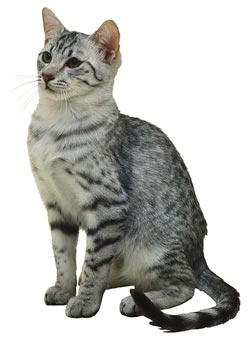The
first step in handling a case
of this type is a thorough medical
work up. Many "self-mutilation"
cases are rooted in a dermatological
or neurological medical basis.
The veterinary medical tests
indicated are:
|
1)
|
Physical
Exam, focusing on Dermatological
and Neurological Systems.
However, any chronic medical
condition that might cause
discomfort should be ruled
out. |
|
2)
|
Blood
Work, both to rule out current
internal problems and pre-medication
(serology and CBC) |
|
3) |
Urinalysis |
|
4)
|
Fecal
Exam |
|
5) |
Other
tests as indicated by the
physical exam might include:
Skin Scraping; Fungal Culture;
Impression Smear, etc. |
| 6) |
Depending
on severity, some cases
require a surgical biopsy
of the tissue. |
 If
all tests have ruled out
physical and medical causes,
then turn to a a behavioral
analysis. If
all tests have ruled out
physical and medical causes,
then turn to a a behavioral
analysis. |
 Behavior
Medication
Behavior
Medication
 There
are several behavior medications
for this condition. These should
ONLY be used after a medical
work up and as pre-prescription
blood work in combination with a behavior
modification program.
There
are several behavior medications
for this condition. These should
ONLY be used after a medical
work up and as pre-prescription
blood work in combination with a behavior
modification program.
First
choice (but most expensive) Fluoxetine 0.5-1.0 mg/kg Once
daily
Second choice Clomipramine 0.5-1.5
mg/kg Once daily
Third choice (less expensive, least effective)
Amitriptyline 5.0-10.0mg total
per cat once daily OR
1-2 mg/kg once daily
 If
pilling is not possible, and
you accept the possibility of
rare side effects (e.g diabetes
and tumors) then an effective
alternative is one IM injection
every 1-3 months of Depo-Provera
Progesterone, 2-10 mg per cat.
If
pilling is not possible, and
you accept the possibility of
rare side effects (e.g diabetes
and tumors) then an effective
alternative is one IM injection
every 1-3 months of Depo-Provera
Progesterone, 2-10 mg per cat.
 Most
vets do not carry these drugs
but they can be prescribed by
any vet through a compounding
pharmacy. Only the vet who did
the work-up can write the prescription since
this requires a client-patient-doctor relationship.
I suggest you bring this entire
email with you to the veterinary visit
for inclusion into the medical
record.
Most
vets do not carry these drugs
but they can be prescribed by
any vet through a compounding
pharmacy. Only the vet who did
the work-up can write the prescription since
this requires a client-patient-doctor relationship.
I suggest you bring this entire
email with you to the veterinary visit
for inclusion into the medical
record.
Behavior
Modification of Feline Self
Mutilation
The behavior modification program
revolves around eliminating
sources of feline stress, counter conditioning
and environmental enrichment.
Reducing Stress
might include: Reducing
the number of cats in household
or separating ones with conflict
into separate rooms.
Give no
attention immediately before
leaving or after coming home
(treatment for possible separation
anxiety component). After 10
minutes, give extra amounts
of gentle, loving praise and
affection.
Try
leaving for short (1 min)
periods of time, then gradually longer.
Praise and give food treats if no self mutilation has occurred.
Work up to 10 min, 30 min and
longer.
|
Do hand feed a portion of each meal,
accompanied by gentle petting
and handling. Groom daily with
a brush if the cat likes it. Increase
exercise, like chase-the-string
or feather-on-a-pole games. |
Counter
Conditioning is
praising any positive interactions
with you or other members of
the house. Praise for any calm,
non-licking time.
Environmental
Enrichment includes:
|
1)
|
Rotating
current toys, praise and
reward any interest in any
toy |
|
2)
|
Provide
new toys regularly, and
SPEND TIME playing with
cat (both exercise AND environmental
enrichment.) |
|
3) |
Evaluate
if he likes to watch an
aquarium or cat entertainment
video |
|
4)
|
Test
him for interest in cat
nip toys (50% of adult cats
respond to catnip) |
|
5) |
Provide
a ceiling to floor cat climbing/scratching
post, and praise any use |
| 6) |
Provide
him high hiding places (e.g.
inside the climbing toy) |
Please be aware these cases
can get better, not change, or
get worse based on implementation
of a plan such as this. Each
of these outcomes means something,
and has to be taken into consideration
in the ongoing overall supervision
of a case like this.
Observe
changes, and report them to
the veterinarian
and the behaviorist
supervising the case.